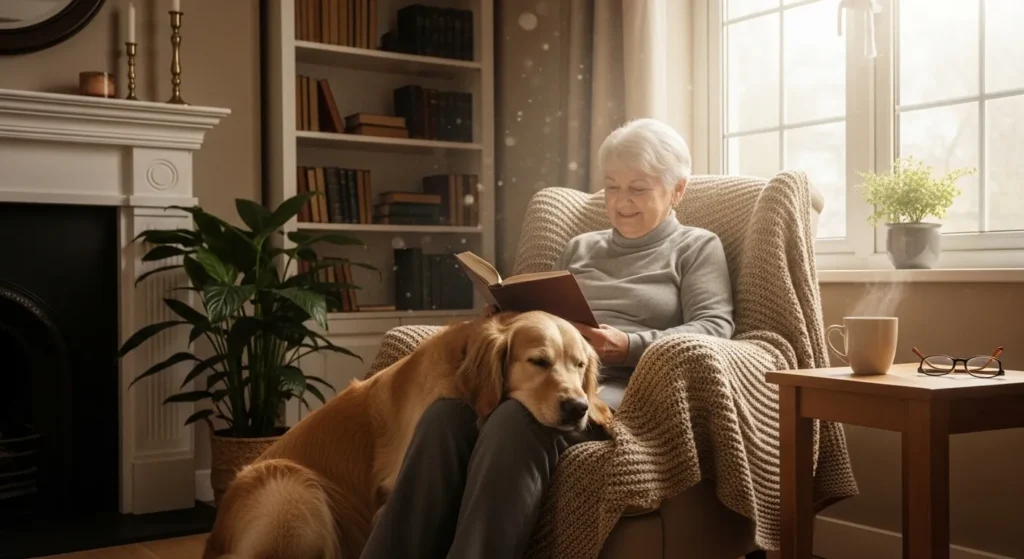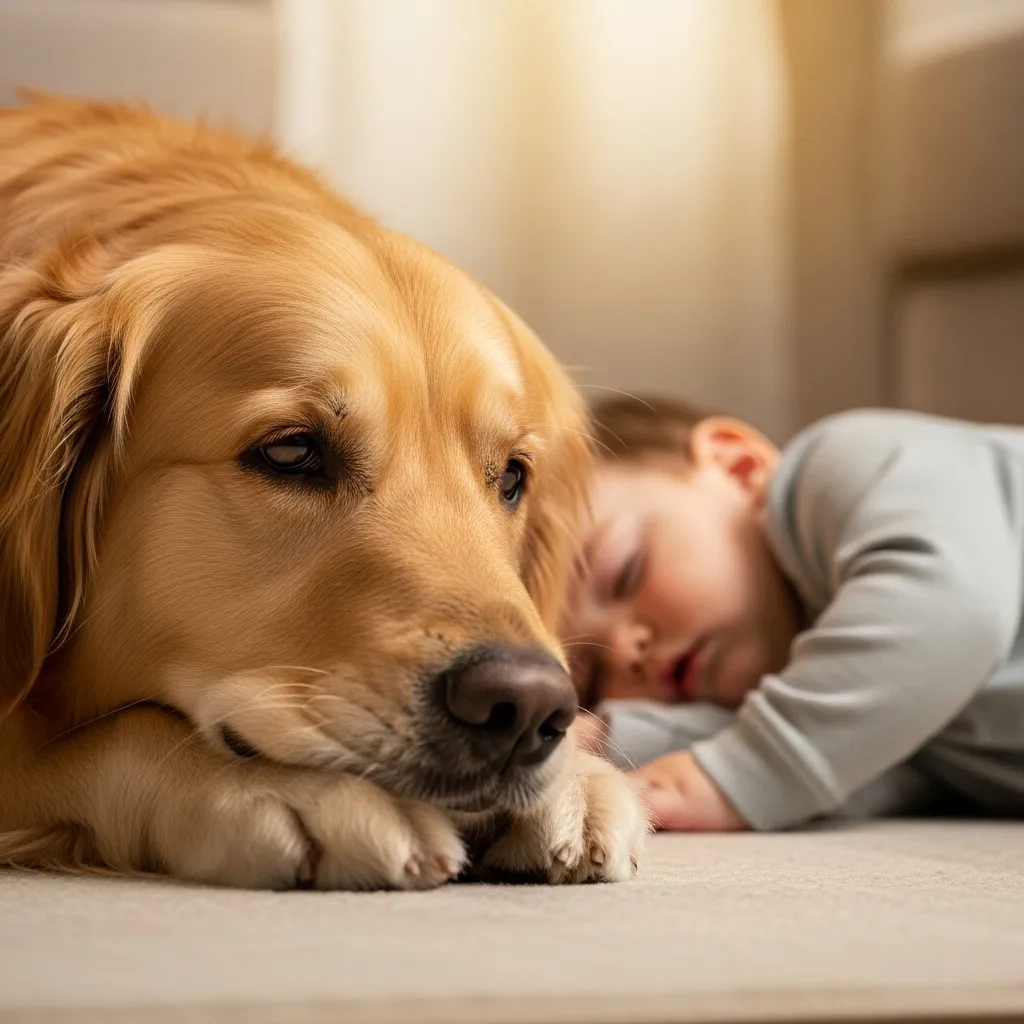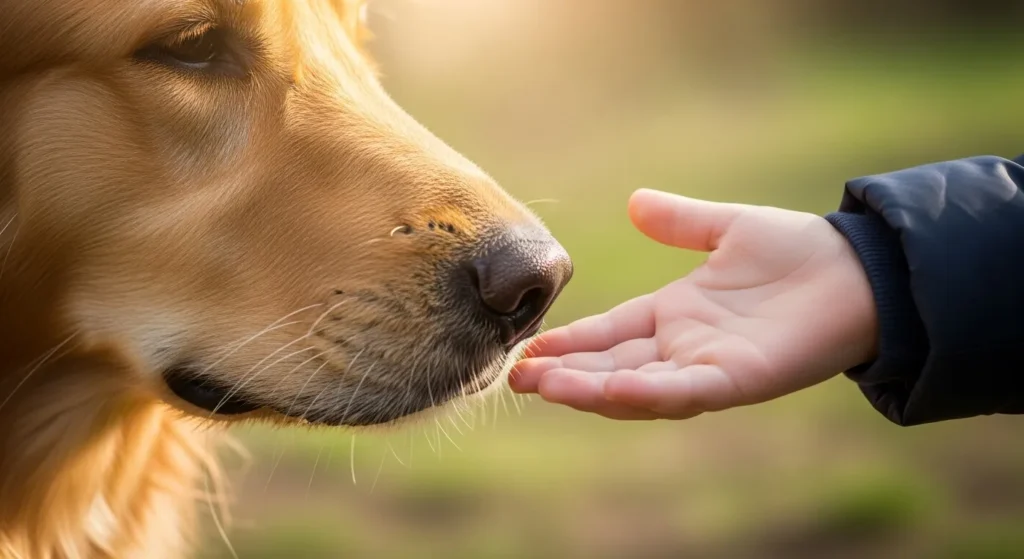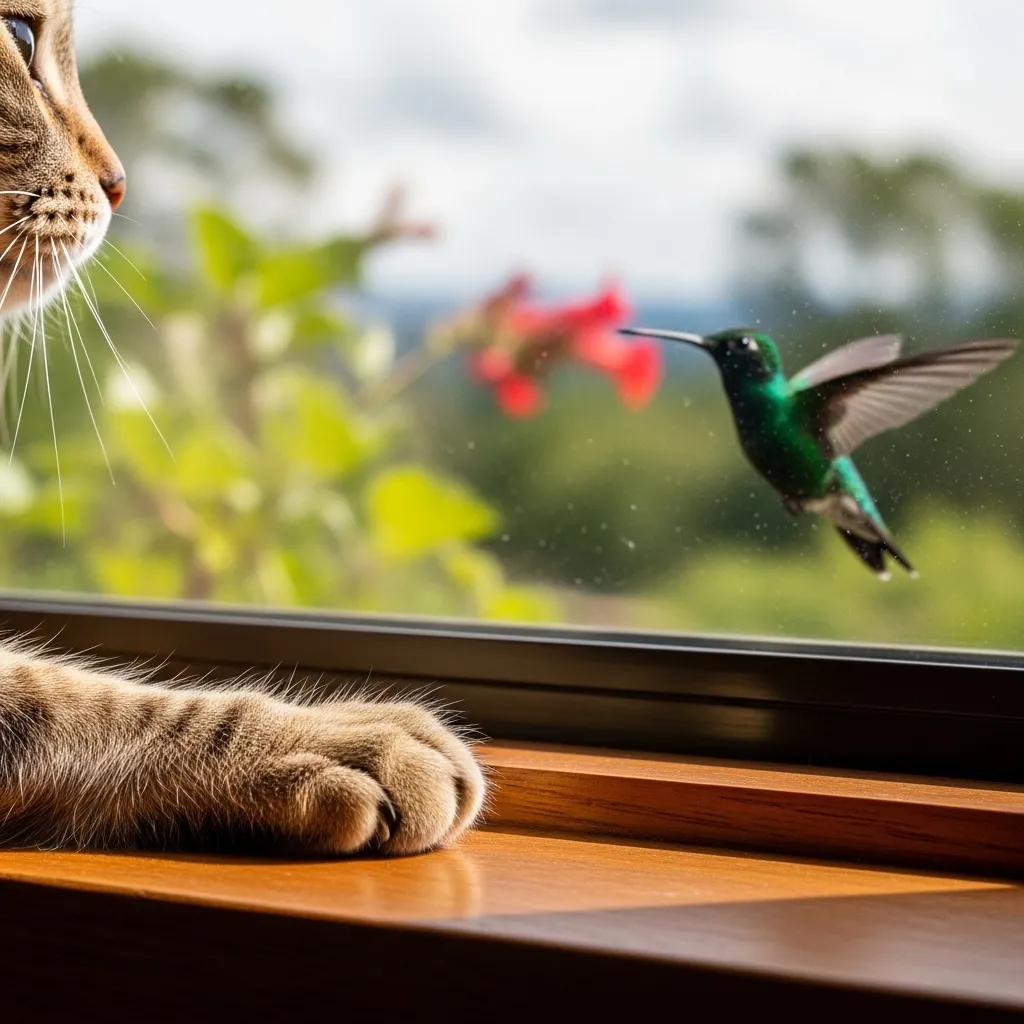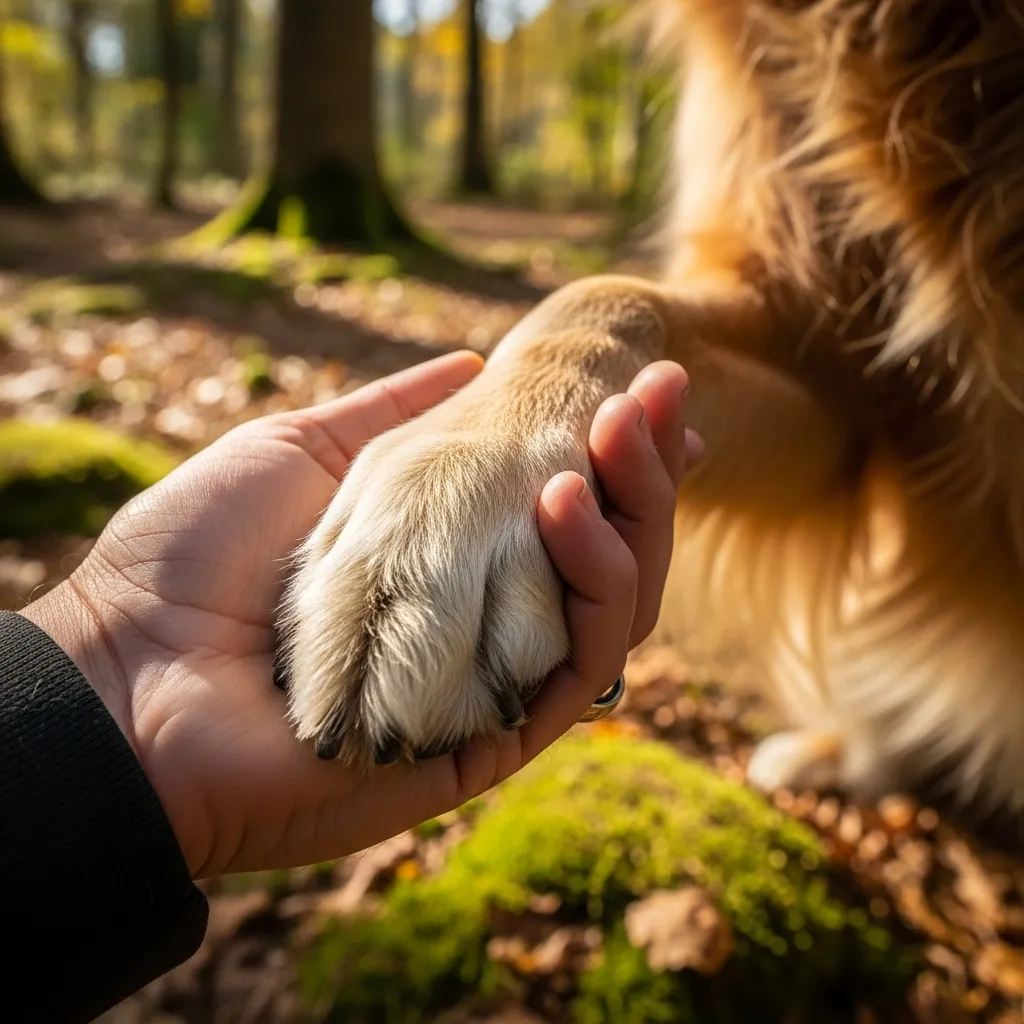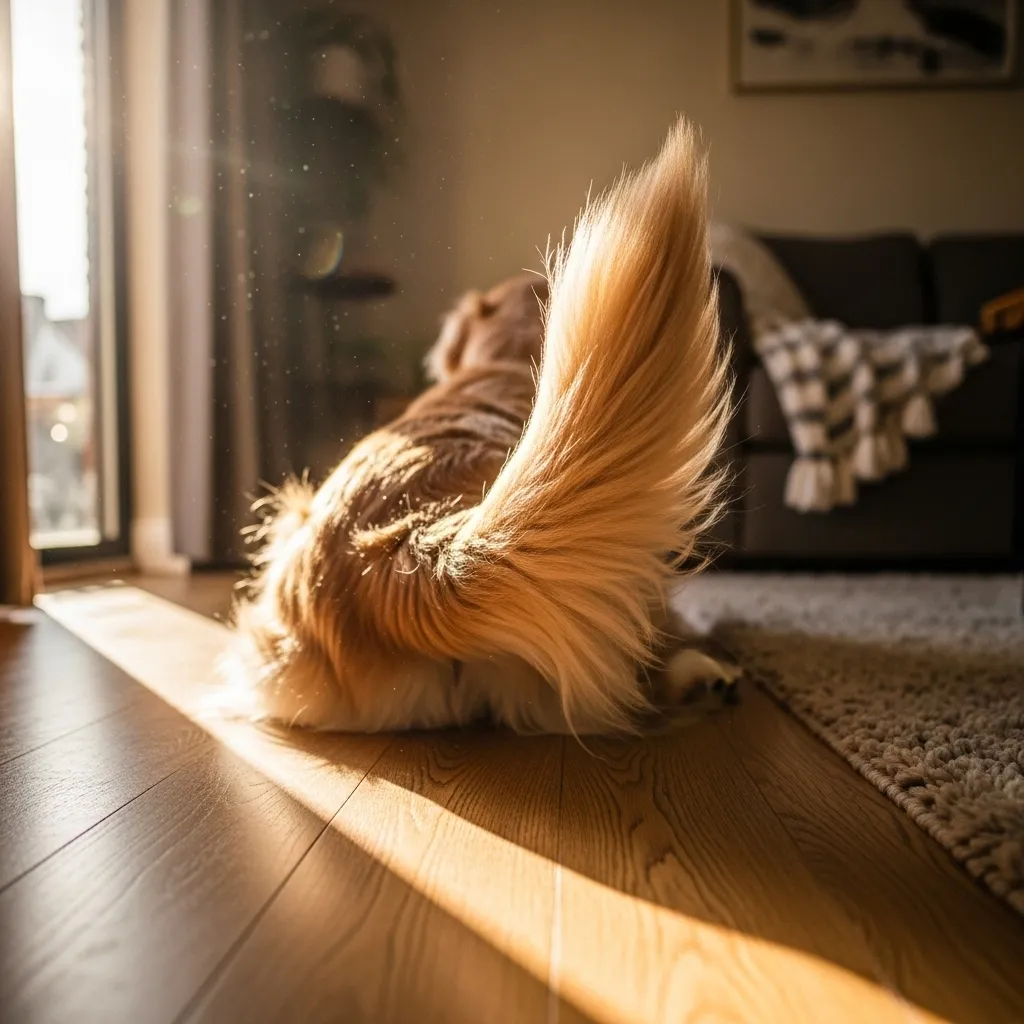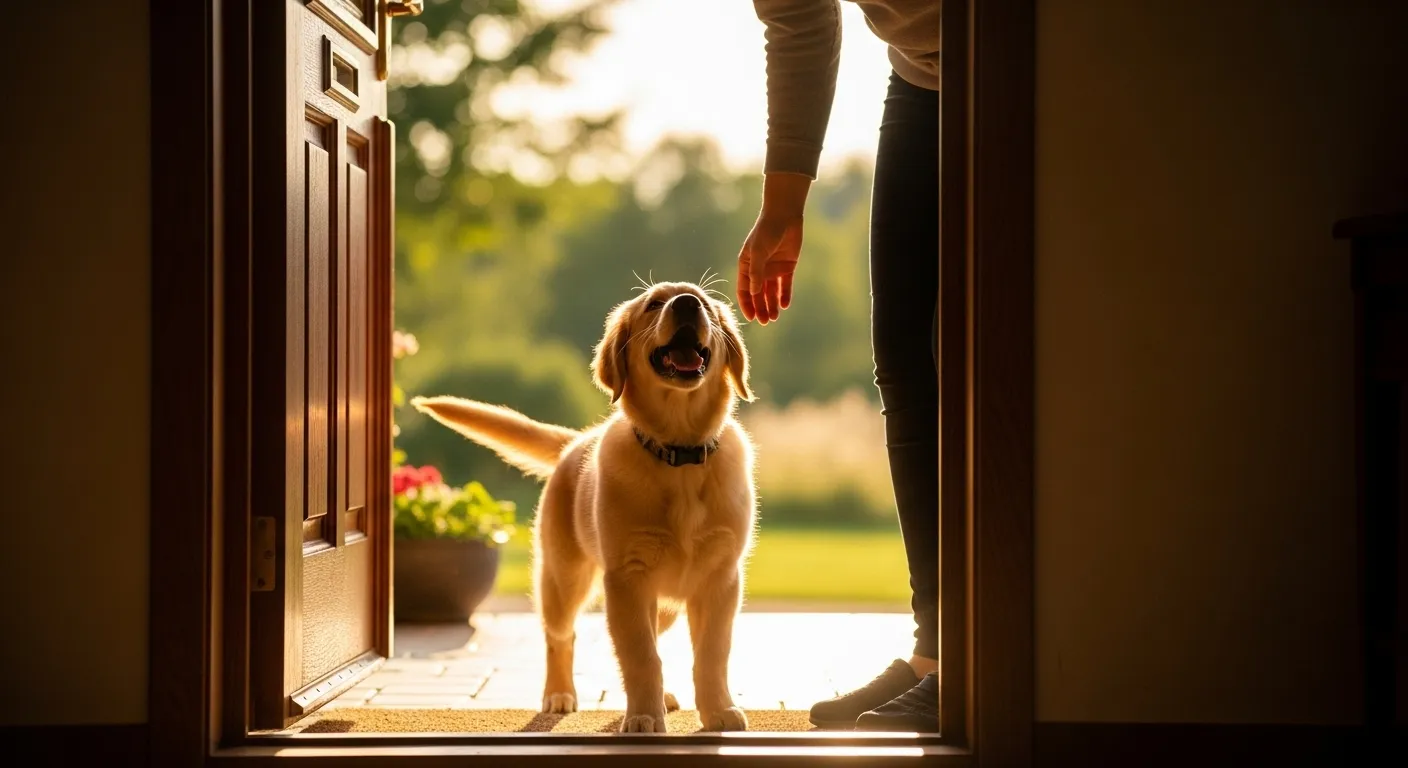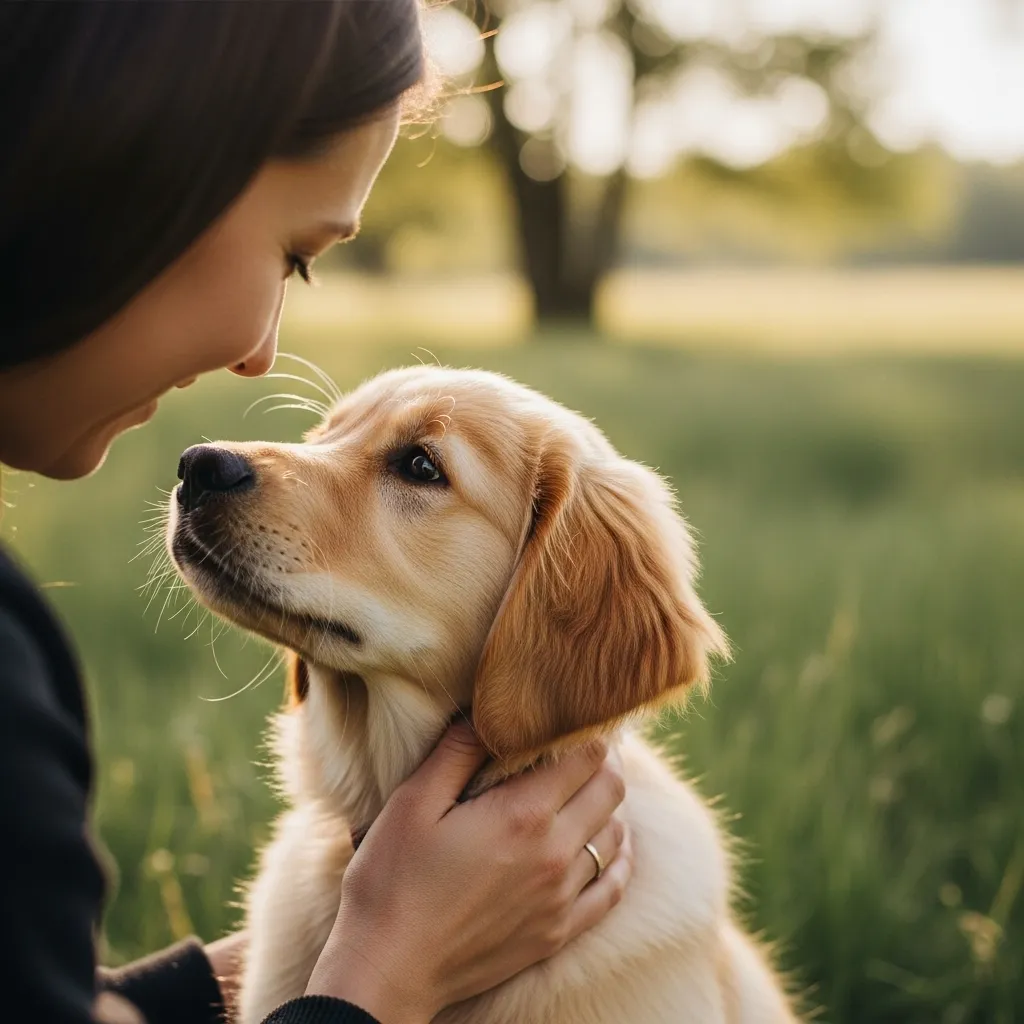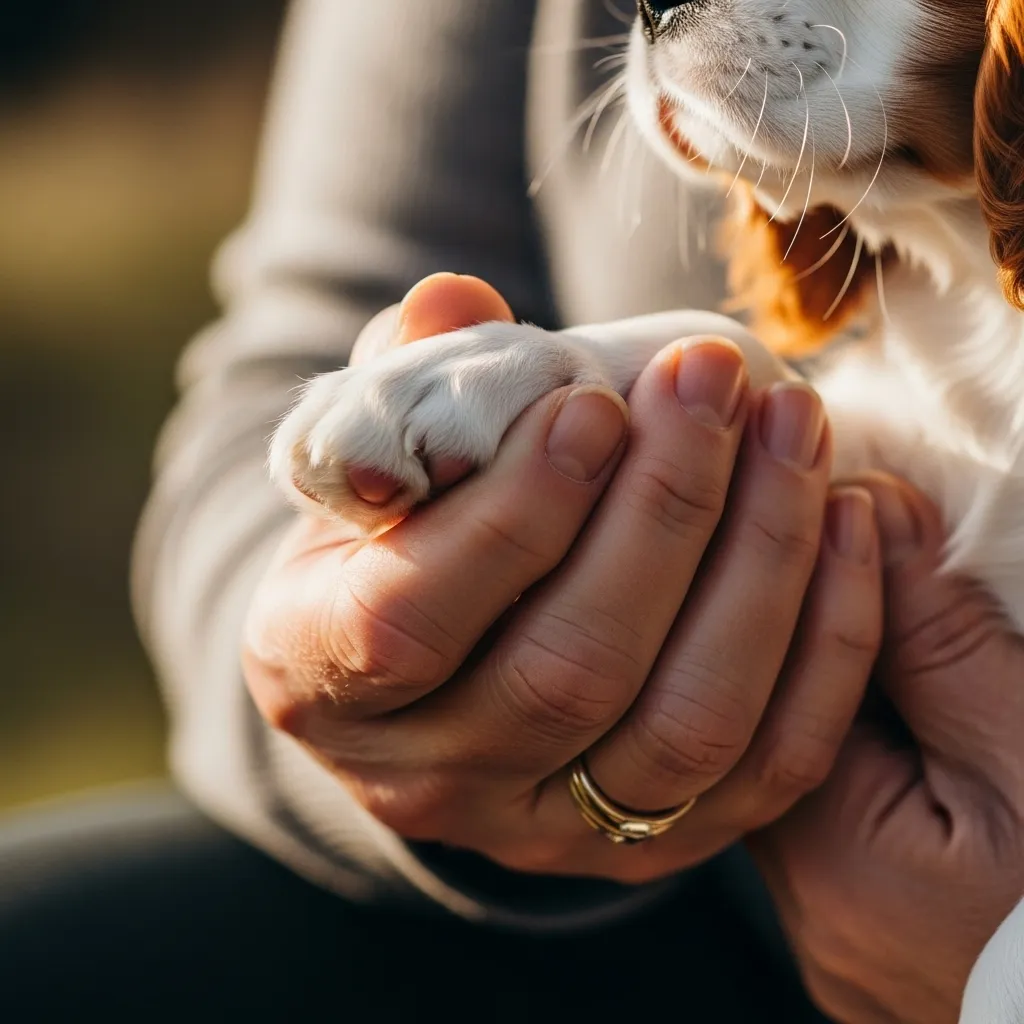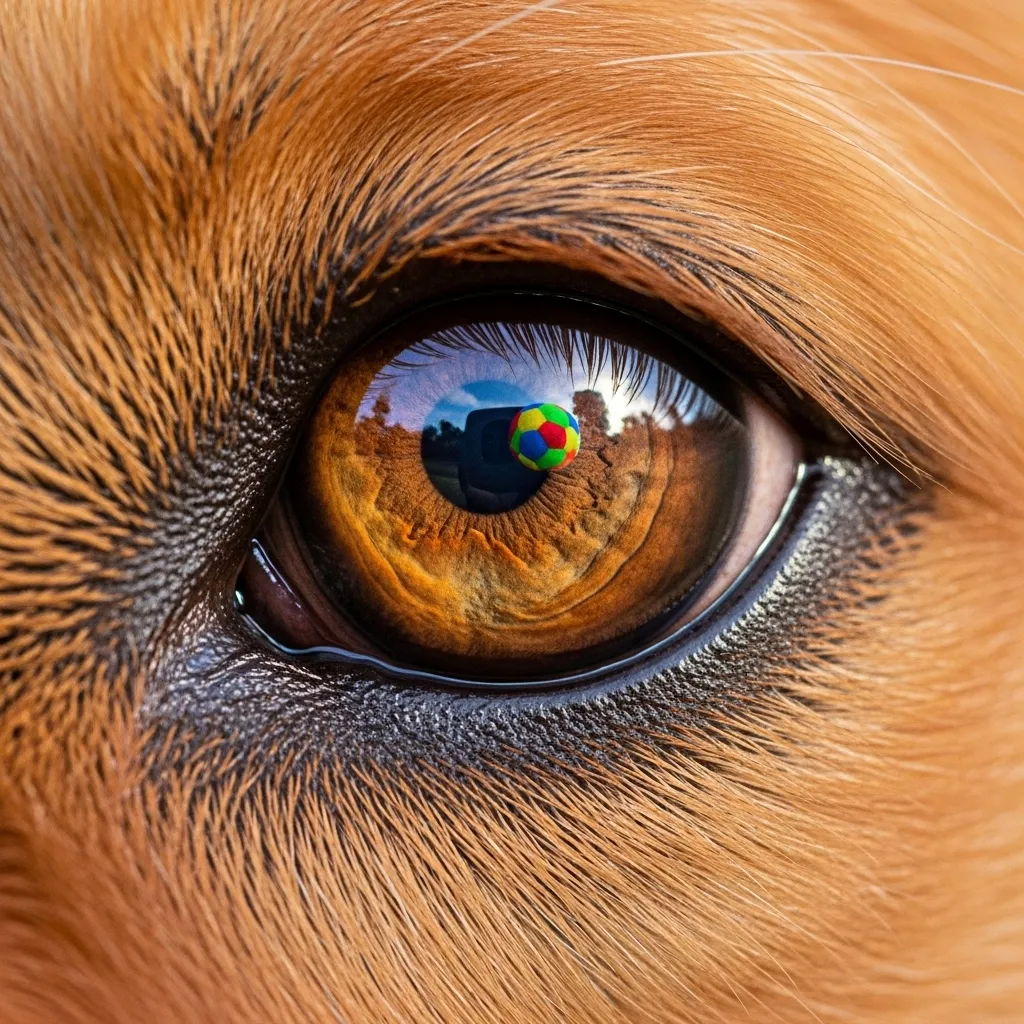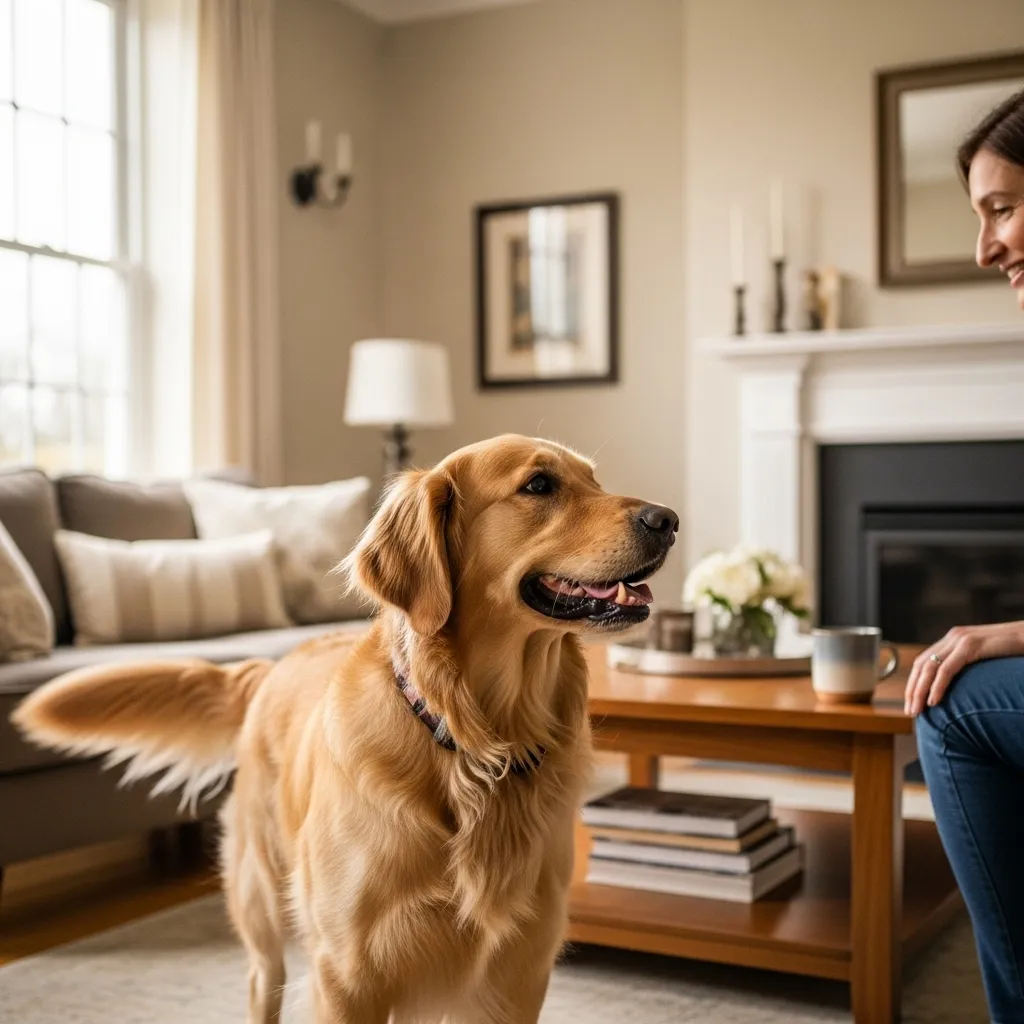These 6 Dog Breeds Are the Best for Emotional Support!
An emotional support animal (ESA) can provide comfort, companionship, and plenty of therapeutic benefits if you’re dealing with an emotional or mental health issue, whether it’s anxiety, panic attacks, depression, chronic stress, ADHD, or even post-traumatic stress disorder (PTSD).
In most cases, ESAs are dogs (but it’s not a rule). Under federal law in the United States, in order to qualify as an emotional support animal, you need a prescription letter from a licensed mental health professional, like a psychiatrist, psychologist, or even therapist.
Unlike service dogs, emotional support dogs don’t need any kind of specific training and, in theory, can be any type of breed you want. But if you’re looking for a new dog to serve as an emotional support animal, there are some types of breeds that could make the best candidates as emotional support animals.
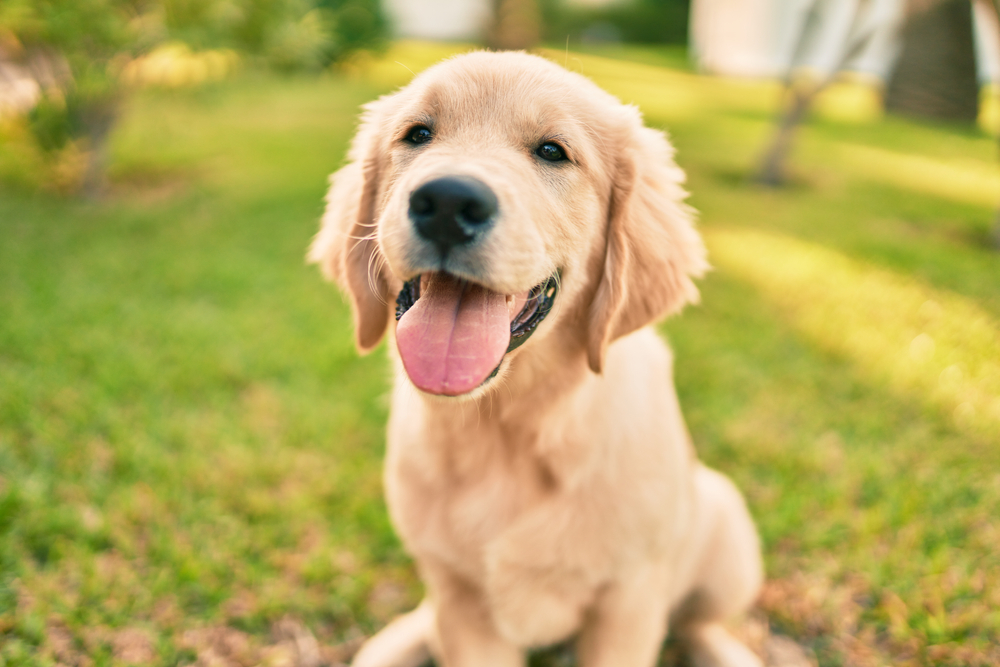
Golden Retriever
Well-known for their friendly and gentle nature, Golden Retrievers are extremely sociable and compassionate dogs. They have a natural instinct to comfort and connect with everyone around them. They have a natural instinct when it comes to comforting and connecting with people.
At the same time, they are very easy to train and are one of the most reliable breeds out there. For this reason, Golden Retrievers are often trained as service dogs. They are also a wonderful option for those who need emotional support.
If you’ve never had a dog before, there’s no better breed to start with than Golden Retrievers. Some of their biggest traits are intelligence, adaptability in training, eagerness to please, patience, and reliability.
Labrador Retriever
Labradors are well known for their loyalty, kindness, and especially affection. They have an intuitive ability to sense your emotions and provide unconditional love to their owners. Labradors are wonderful emotional support animals, but they’re also extremely versatile service dogs.
They always have a friendly disposition, and their adaptability makes them extremely well-suited for different environments and situations. Even if they seem similar, Labrador Retrievers have shorter coats than Golden Retrievers, which is much easier to maintain.
There’s also a difference in character: Goldens can be a bit clingy, but Labradors are more independent. Some of their traits include being loyal, affectionate, very sensitive to all kinds of emotions, versatile, but also independent.
Cavalier King Charles Spaniel
These small but very charming dogs are well known for their never-ending gentleness and affectionate nature. They form very strong bonds with their owners and thrive on close companionship. Cavalier King Charles Spaniels are great for individuals who wish for an emotional companion but don’t want a bigger breed.
They are particularly connected to human emotions, making them wonderful and empathetic companions for emotional support. Some of their most appreciated traits are gentleness, affection, the ability to bond with their owner, their size, and their empathetic superpowers.
Poodle
Poodles are extremely intelligent, and they also have a very calm and composed demeanor. They aren’t only hypoallergenic but also very adaptable, which makes them a great choice for those who suffer from allergies. Poodles come in all kinds of sizes, from standard to miniature, which allows individuals to choose a size depending on their living situation.
Their brightness allows them to provide both emotional support and assistance with different types of tasks. But it’s very important to note that poodles are generally very high-energy dogs, which means they need plenty of attention and physical and mental stimulation.
Some of the most important traits you will find in a poodle include intelligence, a very calm demeanor, a hypoallergenic coat, adaptability, and a wide variety of sizes.
Pug
Pugs are famous for how playful and sweet they can be. They have a very charming personality that brings a lot of joy and comfort to any household. Pugs are also quite small in size, but this doesn’t mean they don’t have the biggest hearts!
They are especially suitable for individuals looking for a breed with a very strong sense of companionship and a knack for lifting every spirit. Some of their traits include playfulness, being very affectionate, having a charming personality, being small, and being spirited.

Shih Tzu
Shih Tzus might seem small, but their hearts are definitely very big. They get their energy from their relationship with their loving owners, and they’re tailor-made for indoor living. With their long and flowing coats and expressive eyes, Shih Tzus are great as emotional support animals.
They are very attentive and loving, and they have a knack for forming deep bonds with their owners. Shuh Tzus also tend to be quite comfortable living in smaller spaces, so if you live in a one-bedroom apartment, for instance, this might be the ideal breed for you.
Some of their most appreciated traits include being very friendly, affectionate, and indoor-friendly; having a long and flowing coat; and having a deep bond with the owner.
Choosing the right breed for you
It’s very important to remember that an emotional support dog isn’t just a therapeutic tool but also a pet in every way. When you decide to bring a new dog into your family, your life will never be the same again in the best possible way. For this very reason, it’s important to choose a breed that matches not only your lifestyle but also your emotional needs. Here are some important factors you should consider:
- Personality: Every breed comes with all kinds of personality traits, so you want to try and find one that will perfectly match up with your needs. For instance, a Golden Retriever generally has quite a calming presence, while a Pug will always try to lift up your spirits.
- Energy level: This is quite an important but oftentimes overlooked factor when it comes to choosing a dog. For instance, high-energy breeds have to get their daily dose of mental and physical stimulation. If you can’t provide that, they could begin acting up in a myriad of different ways. So you need to ponder how much exercise you are willing to provide for your dog and choose a breed.
- Size: Even if size shouldn’t be seen as a determining factor when it comes to choosing a dog, it’s definitely worth thinking about. In fact, more than anything, you need to have enough space for your dog in your own home. For instance, Golden Retrievers and Labradors could thrive if they have plenty of space and supposedly an outdoor area where they can play. On the other hand, a Shih Tzu or a Pug could be very happy in a small apartment, too.
- Grooming requirements: Some breeds require way more maintenance than others. For instance, long-haired breeds need constant brushing, and some (Poodles, for instance) could definitely use constant trips to the hair salon. If you aren’t fully ready to invest the needed time and money in this kind of activity, you might want to consider a low-maintenance breed, like a Labrador, for instance.
- Personal connection: Last but not least, you should never underestimate the amazing and priceless sense of connection you could feel with a specific dog. No matter the breed, dogs have their own unique personalities. You should strive to spend as much time as you can with different furry friends and see what your gut tells you.
If you found this article useful, we also recommend checking out: 10 Small Rodents that Are Also Great Pets

